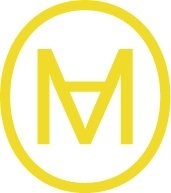When Competence Becomes a Ceiling!
“Why leaders who are “doing fine” might be slowly losing their edge”
A client asked me recently:
"When you were hiring, did you go for cultural fit or for competence?"
It caught me off guard, not because I did not have an answer, but because I had not thought about it in a while. I gave my view at the time (a version of “fit first, train later”) and we moved on. But the question stayed with me.
Later that evening, curiosity got the better of me. I went digging for other perspectives on fit versus skill, potential versus experience, and as often happens when you go down these rabbit holes, I ended up somewhere else entirely.
I stumbled across an article by Julie Winkle Giulioni about something called unconscious competence – that place we reach when we have become so good at something that we stop thinking about it. We execute on instinct. We perform smoothly, capably, consistently.
And it clicked with something I have been observing for years, both in others and, at times, in myself: Competence can quietly become a trap.
The slow fade
I have worked with a lot of people who are deep into that competent zone. They are not coasting. They are not burned out. They are delivering. They are trusted. They have become go-to people for their team and their company.
And the organisation is often very happy with that. Their knowledge becomes an inch wide and a mile deep. They do not need hand-holding. They do not chase the spotlight. They get things done.
But over time, something starts to shift. Gradually.
They stop learning new things. They stop seeking out feedback. The edge softens. Conversations become more about what has worked before than what might work now. There is no drama. But also, no real momentum.
That is when performance becomes something you maintain, not something you shape.
And the longer you stay in that space, the harder it gets to move out of it.
Competence ≠ growth
There is a myth that strong performance always equals growth. But they are not the same thing.
You can be incredibly effective at your job, and not be developing as a leader. In fact, the better you get at the work, the more likely it is that you will stop stretching yourself.
The system does not help. Most organisations reward consistency. They reward people who deliver. They build roles around known strengths. And the more embedded your value becomes, the less likely it is that anyone will ask you to think differently.
In a way, the system rewards you for staying exactly where you are.
But if you are not growing, you are not adapting. And if you are not adapting, you are not evolving as a leader.
So what is the answer?
Not dramatic reinvention. Not quitting your job to start a podcast.
(I mean, I did change careers… but that does not mean everyone needs to.)
It is about small, deliberate steps back into learning.
Back into curiosity.
Back into the kind of questions that keep you evolving.
The best leaders I know do not confuse experience with insight. They know that yesterday’s answers will not always solve tomorrow’s problems. They are not reckless, but they are not asleep either.
They still push themselves, not by overloading, but by staying open. They seek out feedback even when it stings a little. They ask questions, even in rooms where they could easily pretend to know.
That is how they stay sharp. That is how they stay relevant.
A quiet signal
So, if you are reading this and thinking, "I am doing fine. But I have not felt challenged in a while," that is not a crisis.
That is a signal.
A quiet invitation to get back in the game, not just to perform, but to grow.
And if you are a leader trying to develop leadership talent, are you watching for this in others? Are you creating the conditions for growth, not just rewarding competence?
Because people do not lose their edge all at once. They lose it slowly, through routine, through comfort, through a lack of challenge.
And all it takes to bring it back is a bit of curiosity, and the space to use it.
Anthony O'Mara
Performance & Resilience Coach
✉️ anthony@anthonyomara.com
🔗 LinkedIn
📸 Instagram

